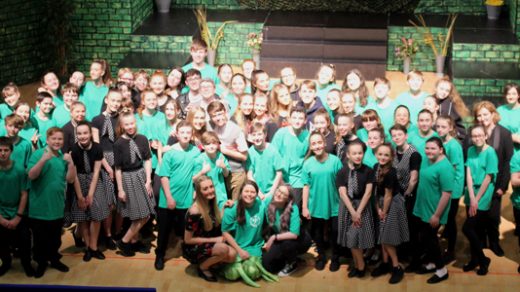Teachers that use ChatGPT ‘effectively’ can reduce lesson planning time by 31 per cent, according to new findings

Teachers using ChatGPT, alongside a guide to support them to use it effectively, can reduce their lesson planning time by 31 per cent. This is according to the findings from a new trial published by the Education Endowment Foundation (EEF).
The independent evaluation of the trial, led by the National Foundation for Educational Research (NFER), investigated teachers’ use of ChatGPT during lesson and resource planning and the impact on their workload.
259 teachers in 68 secondary schools across England took part in the randomised controlled trial. Of those, 129 teachers in 34 schools were randomly allocated to use ChatGPT alongside a guide on effective implementation, to support lesson and resource preparation for their Year 7 and 8 science classes.
The guide was designed by Bain & Company’s Social Impact practice with input from a number of schools and education charities, and funded by The Hg Foundation. It was reported that most teachers in the ChatGPT group were positive about the guide, agreeing that it was easy to understand and relevant.
The teachers who were allocated to use ChatGPT in the trial used it to help with tasks that included creating questions and quizzes, generating activity ideas, and tailoring existing materials to specific groups of pupils. On average, teachers used ChatGPT to support a third of their Year 7 and 8 science lessons and most commonly to plan for one activity within each lesson.
The evaluators found that the group of teachers who used ChatGPT, shaved off an average of 25.3 minutes from their weekly Year 7 and 8 lesson and resource planning time, compared to the comparison group of teachers who were asked not to use ChatGPT, or any other generative AI tools.
This brought their Year 7 and 8 planning time down to 56.2 minutes per week compared to 81.5 minutes in the group asked to avoid using any generative AI. These findings highlight the potential for tools like ChatGPT to help address the stubborn issue of high workloads for teachers.
As well as looking at the impact on workload of utilising ChatGPT, the research also considered the key question of its impact on lesson quality. A sample of lesson materials and resources collected from teachers were reviewed by an independent panel of teachers.
The analysis indicated no noticeable difference in quality between the two groups. Teachers’ own perception of the quality of the resources they had produced also aligned with this finding. However, as the independent assessment was based on a limited sample of lesson resources submitted by participating teachers, this finding – while promising – should be treated with caution, according to the EEF.
The foundation said that with teachers’ use of generative AI tools likely to increase, it will be important that further research looks in detail at the impact of these new technologies on lesson quality, and how they can be utilised in ways that maintain quality and save time.
In the past year, there has been a huge increase in the demand for and use of generative AI in schools. A review of the evidence, published by the EEF last year, found that that strategies to reduce workload were associated with improved teacher retention.
Saarrah Moosa, senior leader of learning and head of e-technologies/STEM lead at Frederick Bremer School, and one of the teachers that participated in the trial, said: “As a teacher, I have used ChatGPT to assist with lesson planning, drafting adapted tasks, and generating creative prompts for student activities.
“It has significantly reduced my day-to-day workload by providing quick, high-quality suggestions, which frees up more time to focus on individual student needs and engagement in the classroom.
“I anticipate continuing to use ChatGPT regularly, particularly for planning and administrative tasks, as it has already proven to be an invaluable tool.
“Moreover, I believe AI platforms like ChatGPT will become a more regular feature in classrooms over time, especially as teachers grow more confident in using them to enhance teaching and learning. A large part of my role this year is to ensure teachers are fully prepared in using ChatGPT to improve teaching and learning.”
Emily Yeomans, co-chief executive at Education Endowment Foundation said: “It’s promising to see the positive findings coming through from this research. This provides us with the interesting first piece in the puzzle of AI’s role in the future of teaching.
“As the teacher recruitment and retention crisis is continuing to grip our education system, there is one issue we hear about again and again – an unmanageable, high workload. If AI has the potential to help address this then we must explore not just if, but how we could harness these technologies to save teachers’ time without reducing quality.
“Only by providing teachers with the best possible tools and support to do their job will we ensure that all pupils are able to truly reach their potential at school.
“Now, we must look to build a far clearer picture of the best use of AI in education, using this initial research as a springboard to further research and development of an evidence-informed approach.”







